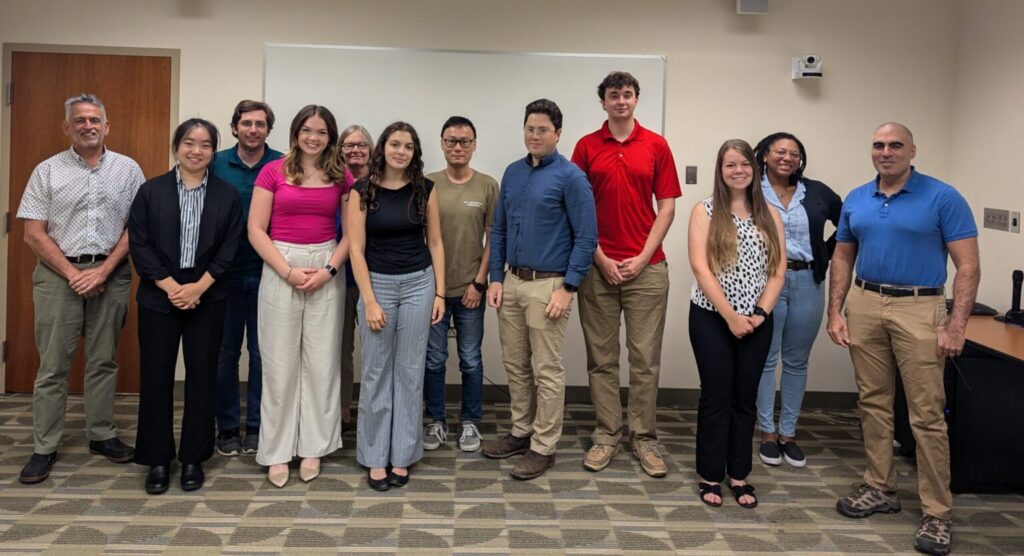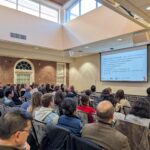On August 23, Climate Resilience Network (CRN) held its very first summer intern presentations. This summer marks the first CRN Summer Internship Program, led by CRN Education Innovation Coordinator Jennifer Collins. CRN supported nine interns working on a variety of CRN projects, from testing water quality in College Park’s Watts Creek to mounting more sites for the Maryland Mesonet.
To learn more about each intern and view their final poster, read on!

Ross Clark
B.S. Geology, 2025
Ross worked with Dr. Karen Prestegaard of the Department of Geology to determine how increasingly severe storms affect sediment load in the Anacostia River watershed.
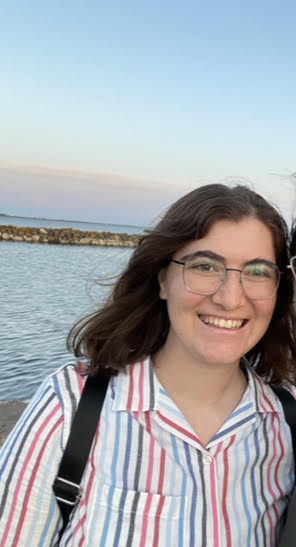
Katherine Cox
B.S. Geology, 2026
Mentor: Michael Maddox
Katherine’s research interests include Chesapeake Bay tidal marsh elevation changes and rising sea levels.
Katherine’s internship project focused on identifying areas where marsh elevation changes are and are not keeping pace with sea level rise in the Chesapeake Bay.
One fun fact about her is that she used to live in Hawai’i.
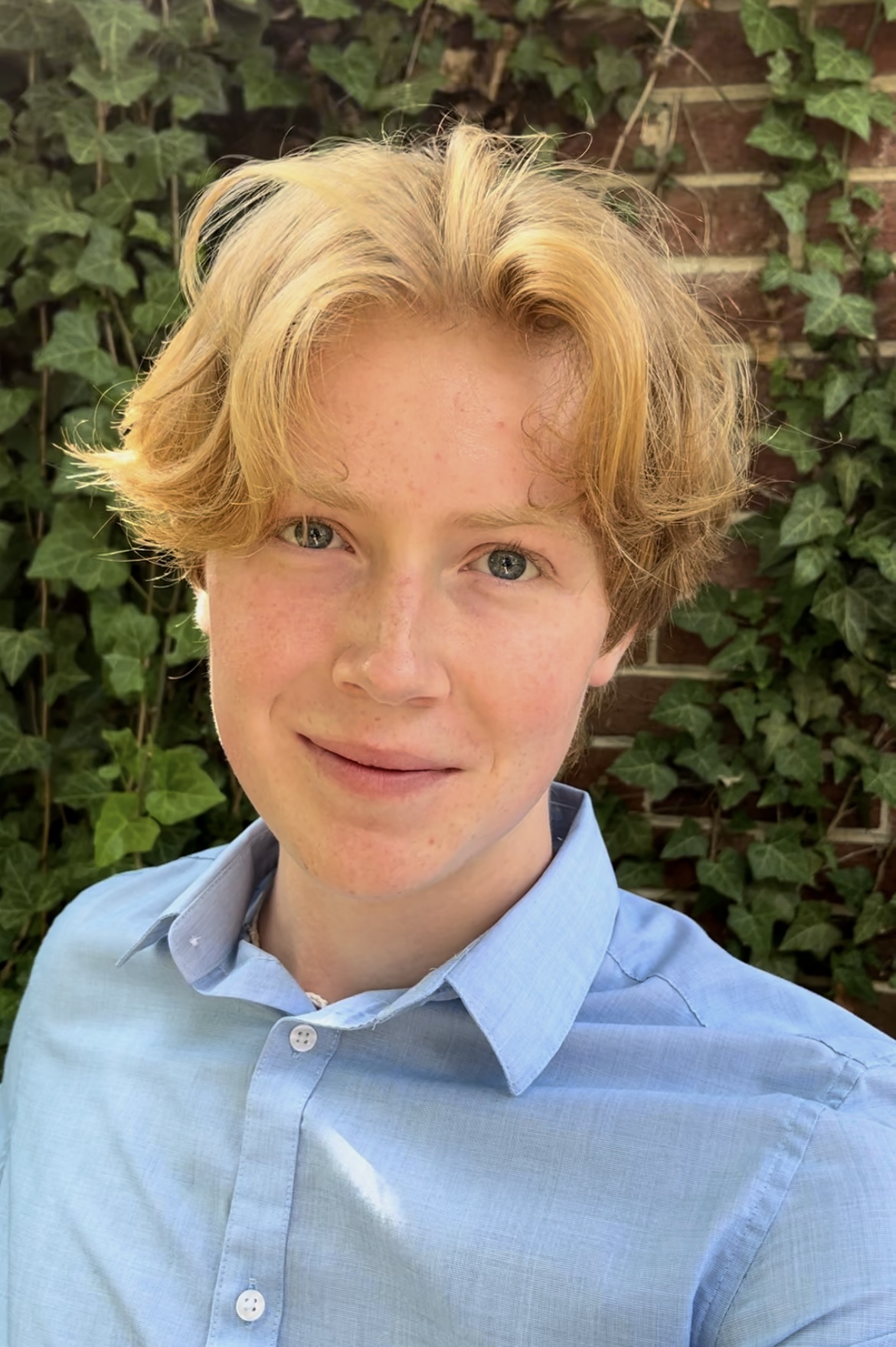
Aiden Hathaway
B.S. Chemistry, 2025
Mentor: Dr. James Farquahar
Aiden’s research interests are Stable Isotope Geochemistry, Methane Gas Origins, and Geochronology.
During the summer internship program, Aiden hoped to develop a holistic approach to research that involves critical thinking, asking the right questions, and approaching research systematically. My experience in the field of methane isotopologues and stable isotopes has been great, and I’ve learned lots of valuable things about the research process in general through this internship.
Some of Aiden’s hobbies are competitive Spikeball, teaching himself Hebrew, and going on runs. Also, Aiden was “homeschooled for high school and got to begin college early, which was awesome.”
Jacob Keeley
B.S. Chemistry, 2025
Jacob worked with Dr. James Farquhar to improve headspace equilibration methods in water samples. Headspace is the air above a substance in a closed container. Headspace equilibration allows scientists to determine the concentration of methane dissolved in water.

Katherine Lehman
B.S. Atmospheric and Oceanic Sciences, 2025
Mentor: Dr. James Hyde
Katherine’s research interests include monitoring the bay breeze from the Chesapeake and its impacts on Maryland weather.
Over the summer, Katherine hoped to gain hands-on experience and learn more than she could in the classroom.
Katherine works with the Department of Atmospheric and Oceanic Science at UMD on the Micronet project, installing and maintaining a small network of weather stations on campus. She also says, “I participate in community service with my environmental professional service fraternity, Epsilon Eta. I am the Vice President of the American Meteorological Society Student Chapter at UMD. Outside of school, I like to stay active in golfing, running, or lifting with friends!”
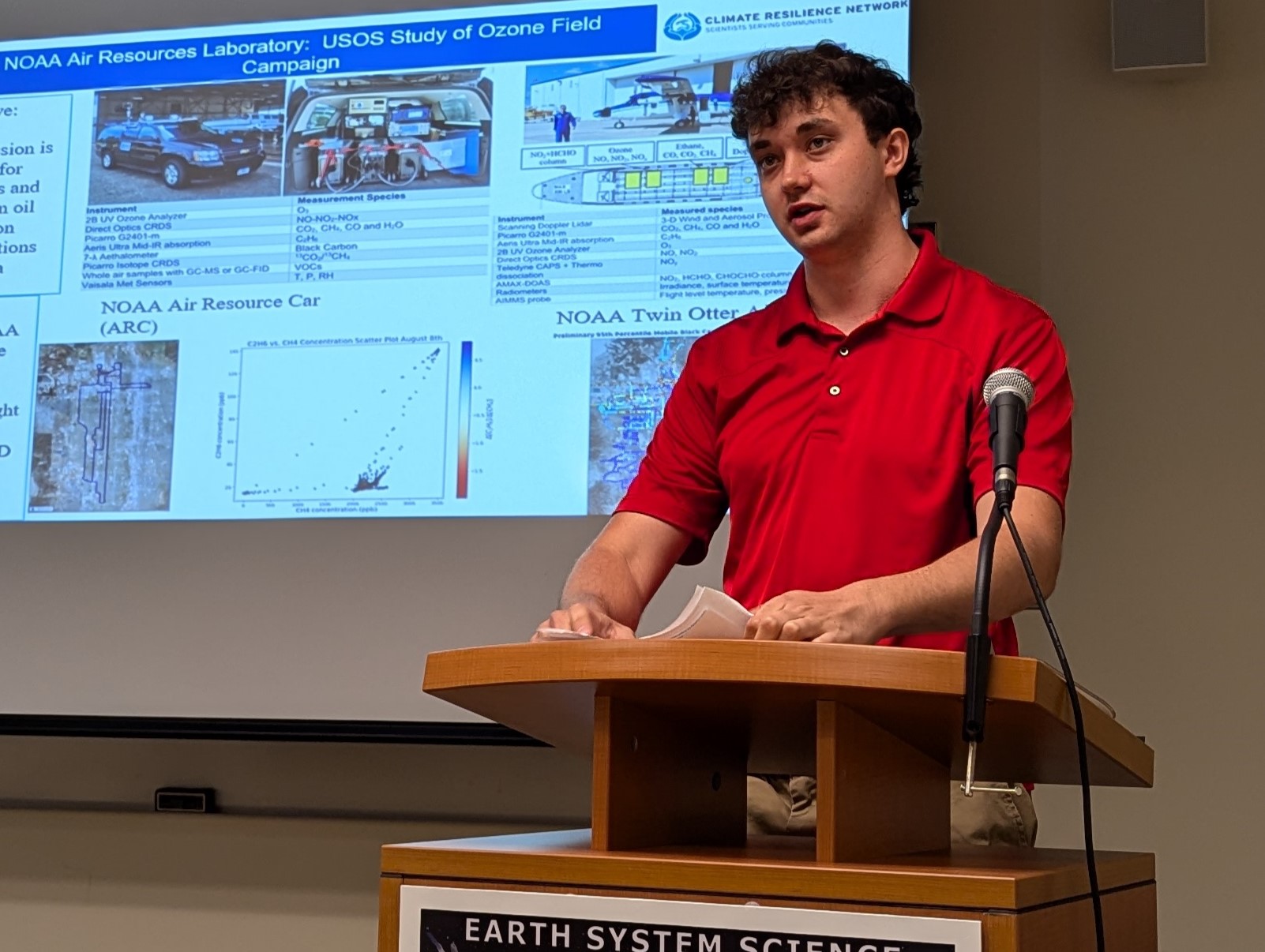
Duncan Santerre
B.S. Atmospheric and Oceanic Sciences, 2026
Duncan worked with Dr. Russell Dickerson and Dr. Xinrong Ren of the Department of Atmospheric and Oceanic Sciences to provide comprehensive and qualitative emissions data for greenhouse gases and pollutants from oil and gas production basins and urban and agricultural areas. Duncan traveled to Salt Lake City, UT to measure the amounts of greenhouse gases in the air in the valley between the Wasatch and Oquirrh mountain ranges.
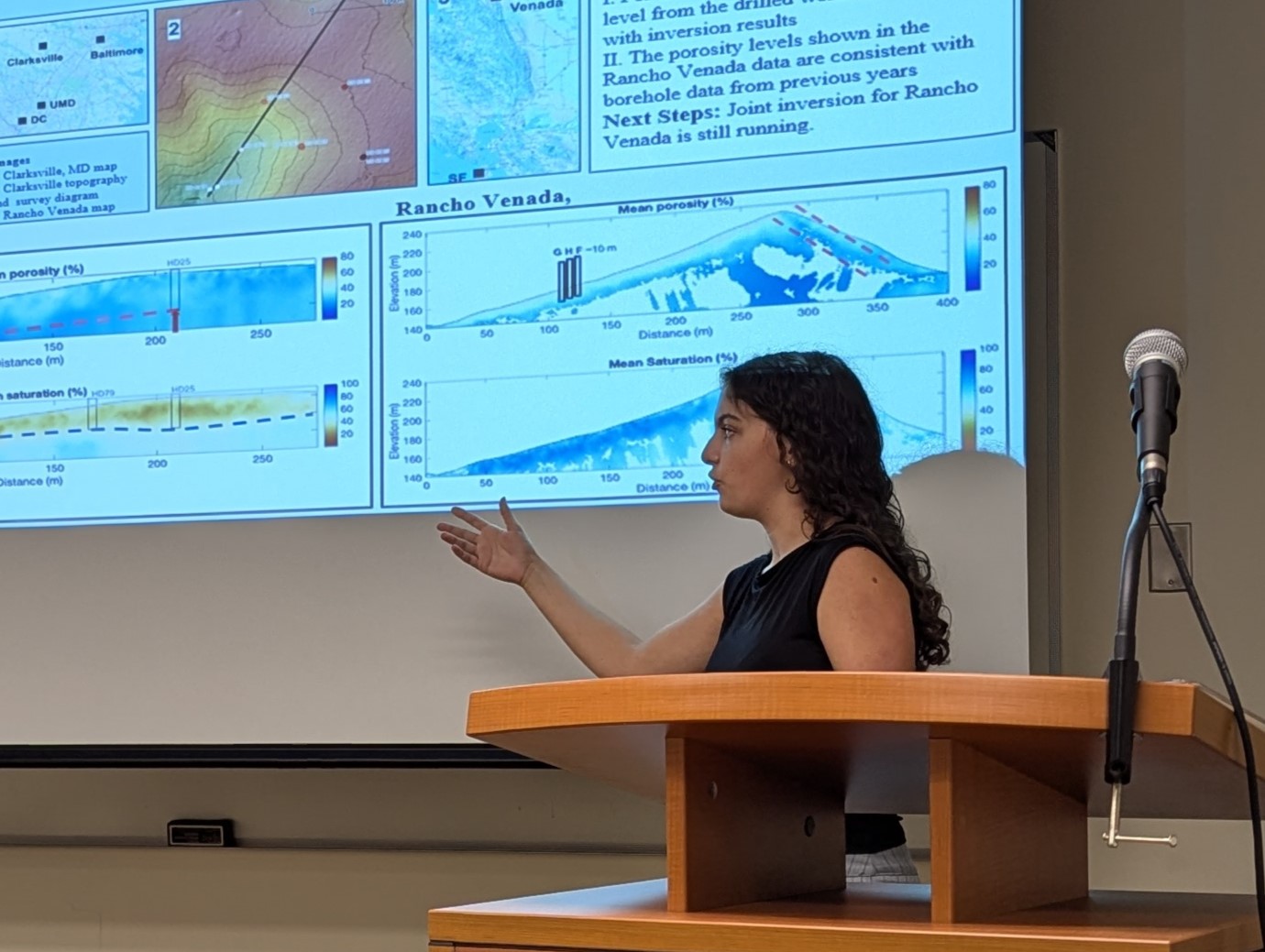
Zoe Schlossnagle
B.S. Physics, Minor Computer Science, 2025
Zoe worked with Dr. Mong-Han Huang of the Department of Geology to investigate the rock strength and water content in different landscapes by using near-surface geophysical techniques. They are interested in understanding the hydrology of groundwater in a given area.
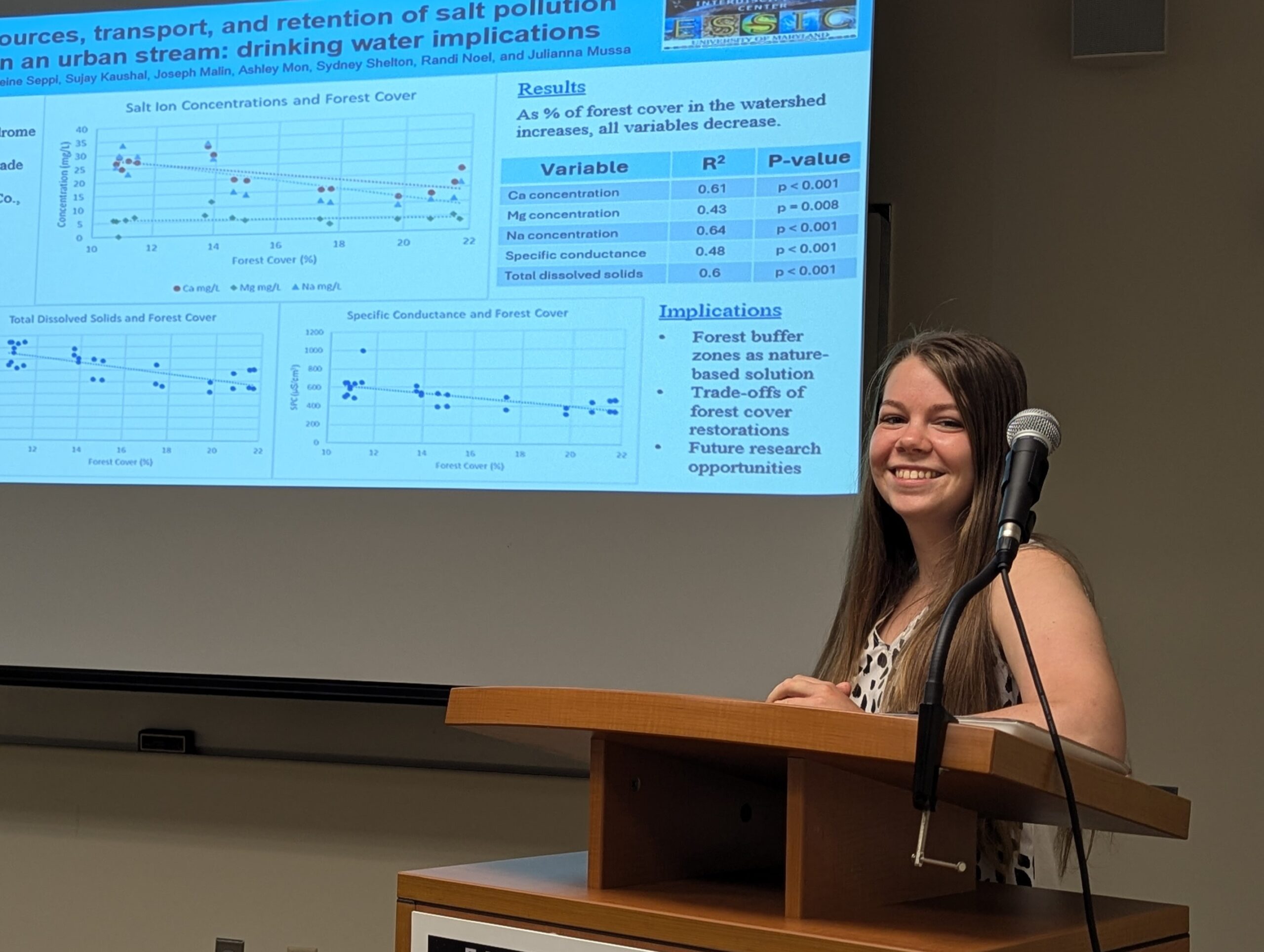
Madeleine Seppi
B.S. Environmental Science and Technology, 2025
Madeleine worked with Dr. Sujay Kaushal of the Department of Geology to determine the relationship between forest cover percentage in riparian zones and the concentration of salt ions in freshwater. Her study of Watts Branch in Rockville, MD found that the concentration of salt ions in the water decreased as vegetation in the riparian zone increased. This, along with reducing pollutant sources could greatly improve the health of freshwater systems in the Chesapeake Bay watershed.
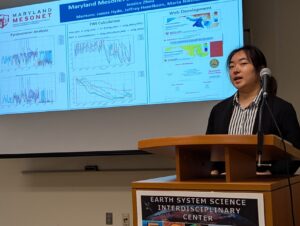
Jessica Zhou
B.S. Computer Science, Minor Statistics and ACES, 2027
Jessica worked with a team led by Dr. James Hyde of the Department of Atmospheric and Oceanic Sciences to ensure that all parts of the Maryland Mesonet are functioning properly. She identified parts that needed to be replaced, improved the Mesonet website, and performed other quality checks.

